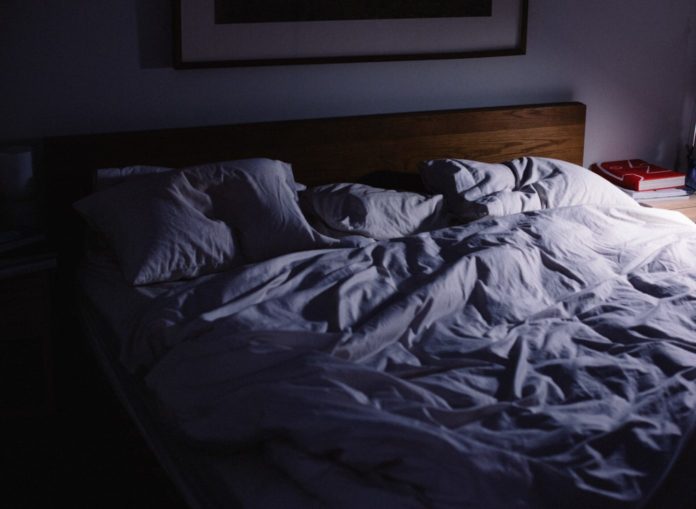If there is one single thing we need to do for our long-term health and wellbeing, it is getting good sleep. If we don’t, it will affect our brain health, our ability to gain benefit from exercise, our ability to maintain an optimal weight, and a host of other issues. When we discuss the SuperAge big rocks of Movement, Diet and De-Stressing, it is the fourth rock, Sleep, which is probably the most fundamental, and also the one that most of us have some sort of issue with.
Surprisingly, we will die from lack of sleep before we die from lack of food. But we all seem to think we can be heroes and just get on with life on as little sleep as we possibly can. This is not recommended as it will lead to a whole host of scary health outcomes that you and your doctor may not even recognize as being related to poor sleep.
Sleep can be a lovely dreamy experience; it is also an essential life-sustaining activity. It is best if it is given major significance in life because without good sleep, everything will suffer. As our friend and sleep champion Norma Kamali likes to say, “The function of the day is to prepare you for sleep.” Being in a full downstate of sleep is what allows us to function during our waking hours. If you really want to scare yourself about what happens to your brain and body from even getting an hour less a night than you optimally need, check out Matthew Walker’s book Why We Sleep. I’ll summarize: not sleeping enough is bad bad bad.
Here are 10 tips for getting better sleep now.
- Create a sleep ramp to take you from your active day to a restful sleep. Our brains do not come wired with an instant off switch, so we need to slowly ramp down. For most people, this is a 2 or 3 hour process. Sure, we can try doing highly mentally engaging work right up until brushing our teeth pre-sleep; however, there is a very good chance we either won’t be able to fall asleep or we will wake up in the middle of the night with a very active brain. Let’s create a nightly routine to let go of the day, and to leave its problems and issues until tomorrow. We will be able to attend to them much more effectively if we are fresh. Let’s wind it down: read some fiction, take a bath, go for a walk, listen to music, go out to dinner, watch a movie. You will know what works for you.
- Beware of caffeine. We all love caffeine; it is the world’s favorite drug. Depending on your genetics, it has a half-life of around 8 hours. There are some people who have very low tolerance for caffeine and should avoid it altogether, and other very rare people who allegedly can have a coffee before bed and sleep soundly. Color us suspicious on this one, as caffeine acts as an adenosine blocker, the chemical in our brains that builds up sleep pressure during our day causing us to feel tired. For most of us, noon is a good cutoff for our favorite beverage.
- Beware of alcohol. Initially it may be relaxing, but even small amounts of alcohol may cause a re-bound effect which can lead to waking up in the middle of the night. Night caps are so 1960.
- No surprises. Even when we are asleep, except in our deepest sleep cycles, part of our brains are alert to danger, which may be interpreted as anything out of the ordinary. The ancient part of your brain is still wired to be alert to the bear entering your cave. You may want to consider something to block out any external sounds. That could be a sound machine in the bedroom, ear plugs, or our favorite Bose Sleepbuds. These are especially useful when traveling. They sit comfortably in the ear, blocking outside noise while playing a selection of sleep tracks.
- Blackout is best. Our eyelids are surprisingly thin and even a small amount of light will register to your brain. Try to keep your room as dark as possible. If there is a constant light, even as dim as a night light, it may cause a disruption in your circadian rhythm. If there is a sudden change in light, like your partner getting up to use the bathroom down the hall, you may wake up. I always sleep with a sleep mask no matter where I am or how dark I may feel the room is. A small increase in the quality of sleep will, over time, make a big difference in how energetic one feels during the days.
- Mattresses. Get a good one, as you need to get the best sleep you can. Go to a mattress store and check out the new products. There may have been big improvements since you last bought one. Here are a few things to look for. First, does the mattress transmit vibration? As in, if your partner rolls over, do you feel it? Remember, during sleep, no surprises. Then, are you a warm sleeper or a cold one? There is now technology to cool your body while sleeping if you tend to sleep too hot. Are you a back sleeper, side sleeper of front sleeper? There are mattresses specifically designed for each of these; pillows, too.
- Cool is best. We all have a preferred sleeping temperature; in general, 64-68 degrees seems to work well for most people. Our sleep signal is increased if we feel our body cooling. This is why a hot bath is effective before sleeping — the cooling of the body will contribute to our sleepiness. Ideally, the room would continue to gently cool through the night till around 5am. But having a constantly cool room is also fine.
- Supplements, maybe. There is a magnesium product called Calm, which after 15 minutes will put most people into the final sleep glide path. Don’t overdo the dosage, as the next day you will be spending more time than comfortable in the bathroom. Some people like melatonin, which is a powerful hormone regulated by prescription in Europe. Without going too deep into it, melatonin is involved in a number of bodily functions besides sleep. Some people take an elephantine dose, 10-50 mg per night, and they are just fine. With others, more than 0.5 mg/ night will have them feeling semi-drunk for the next couple of days. Melatonin can also be helpful in tiny amounts to reset our internal circadian clocks from jet lag, depending on sensitivity. The quantity and quality of what you can buy at the local drug store can vary wildly. It may say 1mg, but there is nothing to say it could be half that or 10 times that. Some people also like GABA and theanine, both of which help calm the mind and are not hormones. With any supplement, it is best to start very small and see how it goes.
- Be consistent. Try to go to sleep at the same time every night and, even more importantly, try to wake at the same time daily. This is not always practical, as we all have the occasional late night event we like to attend. It is your wake-up time that will start your internal clock running, building up your sleep pressure and telling you when to go to bed. So try to be reasonably consistent with when you wake up. Also, try to be consistent with when you eat your last meal relative to sleeping. Digestion will also impact our body’s internal sleep clock.
- Light color is useful. When you wake up, try to get a few minutes of outdoor light, especially the blue sky. This will shut off your melatonin and signal your brain to start your day. In the evening, dim light and warm-color light is what you want. Try to avoid blue-toned computer or phone screens as this will interfere with your melatonin production. As far as those orange or red glasses that are advertised for this purpose, we are not fans — too sci-fi for us. Just turn down the intensity and warm up the color of your light environment.
If one is inclined, wearing a sleep tracker can be very helpful to dial in what really works. Through some trial and error testing all of the above 10 steps, I was able to bring my sleep efficiency, the amount of time in bed vs the time actually asleep, from 82% to consistently over 94%. I used my WHOOP to get these sleep insights. In the course of a year, that is a big gain in the amount of sleep I get, and the amount of free time I spend doing things other than lying in bed. We are all different, and we all have different preferences with all of the above suggestions. The main thing is to make good sleep a priority; you deserve it.



